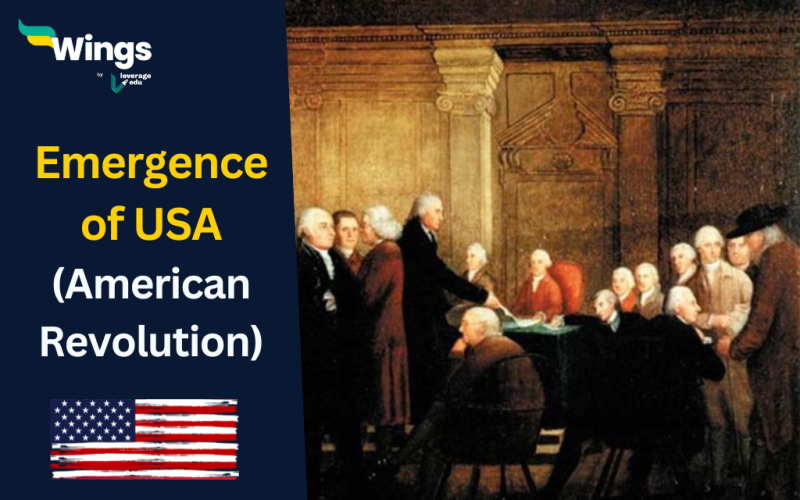American War of Independence: In the mid-1700s, people living in the first thirteen American colonies started feeling more like they belonged to their own country. At that time, British colonists didn’t have full control over the colonies. People in those colonies were starting to think of themselves as Americans, not just as English, Scottish, Dutch, or French. The Birth of the USA is the story of how these thirteen colonies broke away from Britain and created the United States of America, or the USA.
Table of Contents [show]
Timeline of American War of Independence: Emergence of USA
- 15,000 BC: Arrival of Native Americans in North America
- 1607 AD: First English settlement established.
- The 1660s: The middle colonies of New York, New Jersey, and Delaware were established.
- 1754-1763: The French and Indian War, part of the larger Seven Years’ War
- 1775: Start of the American Revolutionary War
- 1789: George Washington was elected as America’s first President
In 1775, when the American Revolutionary War started, it included a number of factors that led to independence. Some of them are as follows:
Also Read: This Day In History – May 10
Reasons for the American War of Independence
- Seven Years’ War: In 1763, the Seven Years’ War ended, and Canada went from being controlled by France to being controlled by England. This meant that the Americans didn’t have to worry about attacks from the French any more.
- Granville Measures: The British Prime Minister, Granville, passed a series of laws in the American colonies. These laws, like the Sugar Act of 1764, the Stamp Act of 1765, and the Quartering Act, affected the colonists’ interests.
- Townshend Laws: Another British leader, Townshend, put new taxes on things like glass, paper, tea, and paint in 1767. Americans didn’t like this, so they boycotted British goods. This led to a fight between British soldiers and Americans in Boston, where five Americans were killed.
- Boston Tea Party: In 1773, a new law was made that put a tax on imported tea, which the Americans didn’t want. Some Americans dressed as Native Americans and threw tea into the sea at Boston Harbour in protest. This was called the Boston Tea Party.

- Philadelphia Congress: In 1774 and 1775, people from the American colonies met in Philadelphia. They asked the British King to stop limiting their businesses and trade and to not tax them without their agreement. The King said no, even when they sent a special letter called the Olive Branch Petition. So, the American colonists decided to work together against the British.
- Declaration of Independence: A pamphlet called “Common Sense” started going around the colonies. It criticised the idea of having a king and instead promoted the idea of a government where the people have a say. This inspired Americans to fight for their freedom.
Finally, on July 4, 1776, the Continental Congress adopted the Declaration of Independence. This document talked about the importance of human freedom and said that people have the rights of “Life, Liberty, and the Pursuit of Happiness.
FAQs
The American Revolution, which raged from 1765 to 1783, was a protracted political and military conflict that was started by 13 of Britain’s North American colonies rising up against its imperial rule. The protest initially arose in opposition to taxes levied by the British Crown and Parliament without the participation of the colonies.
Ans. The Boston Massacre, the Boston Tea Party, the Taxation Acts, and the Intolerable Acts were the four major events that ignited the American Revolution.
Ans. British forces and colonial militiamen engaged in skirmishes in Lexington and Concord in April 1775; by the summer, the rebels were waging a full-scale war for their independence.
Ans. After the Thirteen Colonies gained independence and fought off the British in the American Revolutionary War (1775–1783), the United Nations of America became the first nation-state to be founded on liberal democratic Enlightenment principles.
America desired independence because it lacked self-government.
Hope you have gotten all the relevant information about the Emergence of the USA! If you want to know more about topics like this, then visit our general knowledge page! Alternatively, you can also read our blog on general knowledge for competitive exams!
 One app for all your study abroad needs
One app for all your study abroad needs















 45,000+ students trusted us with their dreams. Take the first step today!
45,000+ students trusted us with their dreams. Take the first step today!
